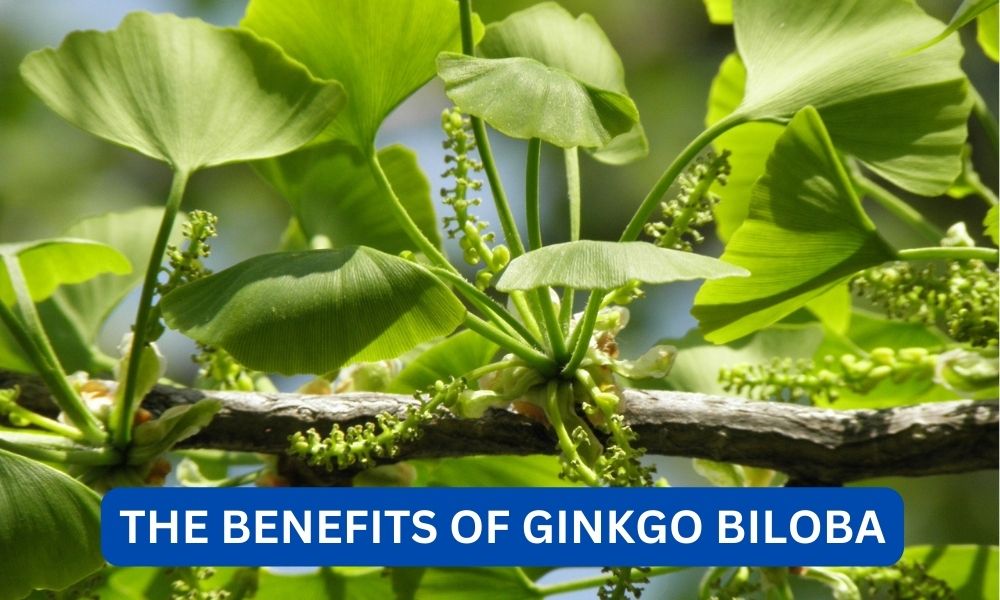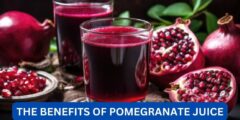Ginkgo biloba, also known as the maidenhair tree, is one of the oldest living tree species in the world. It has been used in traditional medicine for centuries and is now gaining popularity as a natural supplement for its numerous health benefits. This ancient tree is native to China and has been cultivated for its medicinal properties for over 5,000 years. In recent years, ginkgo biloba has become a popular supplement in the Western world, with many people turning to it for its potential health benefits. In this article, we will explore the benefits of ginkgo biloba and how it can improve your overall well-being.
Contents
What is Ginkgo Biloba?
Ginkgo biloba is a deciduous tree that can grow up to 120 feet tall and is known for its fan-shaped leaves. It is commonly found in China, Japan, and Korea, but can also be found in other parts of the world. The tree produces small, yellowish-green flowers and inedible fruit that contains a hard, inner seed. The seeds of the ginkgo biloba tree have been used in traditional Chinese medicine for centuries to treat a variety of ailments.
The leaves of the ginkgo biloba tree contain compounds called flavonoids and terpenoids, which are believed to have antioxidant properties. These compounds are responsible for the potential health benefits of ginkgo biloba. The leaves are typically dried and used to make extracts, tablets, and capsules for consumption.
Read:what are the benefits of fish oilThe Benefits of Ginkgo Biloba
Ginkgo biloba has been used in traditional medicine for a variety of purposes, but in recent years, scientific research has shed light on its potential health benefits. Let’s take a closer look at some of the benefits of ginkgo biloba.
Improves Cognitive Function
One of the most well-known benefits of ginkgo biloba is its ability to improve cognitive function. Several studies have shown that ginkgo biloba can improve memory, concentration, and overall cognitive performance in both healthy individuals and those with cognitive impairments.
A study published in the Journal of Psychopharmacology found that ginkgo biloba extract improved cognitive function in healthy individuals, particularly in the areas of attention and memory. Another study published in the Journal of Alternative and Complementary Medicine found that ginkgo biloba improved cognitive function in individuals with mild cognitive impairment.
These studies suggest that ginkgo biloba may be beneficial for those looking to improve their cognitive function, especially as they age. It may also be helpful for individuals with conditions that affect cognitive function, such as Alzheimer’s disease and dementia.
Reduces Anxiety and Depression
Ginkgo biloba has also been shown to have a positive effect on mental health. Several studies have found that ginkgo biloba can reduce symptoms of anxiety and depression.
Read:What are the benefits of icing your face?A study published in the Journal of Psychiatric Research found that ginkgo biloba extract was effective in reducing symptoms of generalized anxiety disorder. Another study published in the Journal of Alternative and Complementary Medicine found that ginkgo biloba was effective in reducing symptoms of depression in individuals with mild to moderate depression.
These findings suggest that ginkgo biloba may be a natural alternative for those looking to manage symptoms of anxiety and depression. However, more research is needed to fully understand its effects on mental health.
Improves Blood Circulation
Ginkgo biloba has been used in traditional medicine to improve blood circulation for centuries. Recent studies have confirmed this benefit, showing that ginkgo biloba can improve blood flow and circulation in the body.
A study published in the Journal of Cardiovascular Pharmacology found that ginkgo biloba extract improved blood flow in individuals with coronary artery disease. Another study published in the Journal of Vascular Surgery found that ginkgo biloba improved blood flow in individuals with peripheral arterial disease.
These studies suggest that ginkgo biloba may be beneficial for individuals with conditions that affect blood flow, such as heart disease and peripheral artery disease. It may also be helpful for those looking to improve their overall cardiovascular health.
Read:What are the health benefits of dark chocolate?Reduces Inflammation
Inflammation is a natural response of the body to injury or infection, but chronic inflammation can lead to various health problems. Ginkgo biloba has been found to have anti-inflammatory properties, making it a potential natural remedy for conditions related to inflammation.
A study published in the Journal of Ethnopharmacology found that ginkgo biloba extract reduced inflammation in individuals with rheumatoid arthritis. Another study published in the Journal of Medicinal Food found that ginkgo biloba extract reduced inflammation in individuals with ulcerative colitis.
These studies suggest that ginkgo biloba may be beneficial for individuals with conditions related to inflammation, such as arthritis and inflammatory bowel disease. However, more research is needed to fully understand its effects on inflammation.
Protects Against Age-Related Eye Diseases
Ginkgo biloba has also been found to have potential benefits for eye health. As we age, our eyes become more susceptible to diseases such as macular degeneration and glaucoma. Ginkgo biloba may help protect against these age-related eye diseases.
A study published in the Journal of Ocular Pharmacology and Therapeutics found that ginkgo biloba extract improved visual function in individuals with glaucoma. Another study published in the Journal of Ophthalmology found that ginkgo biloba extract improved visual acuity in individuals with age-related macular degeneration.
These studies suggest that ginkgo biloba may be beneficial for individuals looking to protect their eyes against age-related diseases. However, more research is needed to fully understand its effects on eye health.
How to Take Ginkgo Biloba
Ginkgo biloba is available in various forms, including capsules, tablets, and liquid extracts. It is important to follow the recommended dosage on the product label or as advised by a healthcare professional. The typical dosage for ginkgo biloba is 120-240 mg per day, divided into two or three doses.
It is important to note that ginkgo biloba may interact with certain medications, so it is important to consult with a healthcare professional before taking it. It may also cause side effects such as headache, dizziness, and upset stomach in some individuals.
In Conclusion:
Ginkgo biloba is a powerful natural supplement with numerous potential health benefits. From improving cognitive function to reducing inflammation, this ancient tree has been used in traditional medicine for centuries and is now gaining recognition in the Western world. However, more research is needed to fully understand its effects and potential uses. If you are considering taking ginkgo biloba, be sure to consult with a healthcare professional to determine if it is right for you.
Overall, ginkgo biloba is a promising natural remedy that may offer a variety of benefits for your overall well-being. With its long history of use and growing scientific evidence, it is definitely worth considering as a supplement to support your health.









